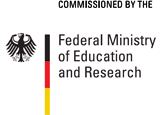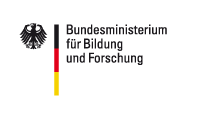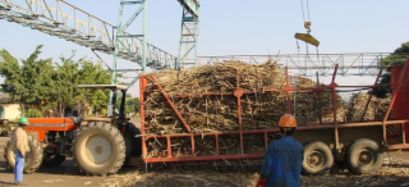Project objective
The European cosmetics industry has a growing interest in a 'gentler' production method of the dermatologically important basic substance 'levulinic acid' from non-genetically modified renewable resources. In South Africa, on the other hand, there is an urgent need to enhance the value chain of the sugar cane industry and the mills located at the beginning of the production chain, which reaches beyond the well established bioethanol production that faces sharp economic competition.
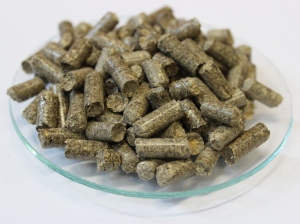
Bagasse pellets © Lisa Marie Schmidt, TUHH
The project now combined both approaches: a sustainable process was developed for the waste sustance sugar cane bagasse, which had previously only been used as a solid fuel: now levulinic acid can be produced from the biomass via the use of heated water under high pressure and a subsequent gentle catalysis. As this process is in technological competition with other methods, the project was complemented by an economic assessment of possible industrial applications.
Use of results
Levulinic acid is one of the twelve most important basic materials with biomass origin, which are processed in the chemical / life sciences and fuel industries, both currently and long-term. The process, jointly developed during the project period, differs from the established direct conversions by recycling waste materials, which have no value for the food industry, but also by using sustainable reactants such as water or unproblematic acids. As expected, the process is more complex and involves higher costs. Accordingly, the following influencing factors have been described in greater detail on the German side in cooperation with TUHH's Institutes of Thermal Separation Processes, and of Environmental Technology and Energy Economics:
Funding announcement
Funding of the scientific and technology collaboration (STC) with South Africa
Partner country / region
South Africa
Life span
1 February 2015 – 31 January 2017
Partner institutions
Hamburg University of Technology (TUHH)
Durban University of Technology, Dept. of Chemistry
University of Kwa Zulu, Sugar Milling Research Institute
- the pelletisation of biomass leads to an increase in production costs of 23%;
- other products are generated from the bagasse (fibrous residues of the sugar production from sugar cane and sorghum fungi) in a kind of product cascade, and the parameters are adapted for this purpose (e.g. circulation, improved enzymatic conversion) the economic balance is quite competitive under the assumptions made by the project. It is also promising that the cascade products "char or pyrolysis oil" (dark brown liquid obtained by thermochemical cleavage of biomass at temperatures of approx. 500 °C) as well as "lignin" (solid biopolymers, imbedded in plant cell wall and causing the lignification of the cell), can still be used as a fuel. Higher-value use, particularly of lignin, is highly attractive industrially (glue, plastics, pharmaceutical industry) and would also make the production of levulin commercially more advantageous. Discussions with potential buyers of these cascade products revealed that up to 2,000 euros / metric ton could be an obtainable price for high-quality lignin.
The patenting and licensing of the procedure was not yet achieved within the project's reporting period.
Added value of international cooperation
The cooperative objectives of the partners involved – the competitive use of bagasse (South Africa) and the use of a newly developed, sustainable technology for the further development of biomass (Germany) – were complementary. Parts of the work were integrated into several dissertations both on the South African and on the German side. The project partners contributed actively to the international networking through the regular deployment of scientific staff, the involvement of an SME in Germany and an SME network in South Africa, as well as by organising two academic and public workshops.
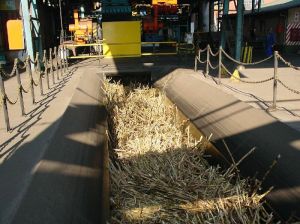
Pre-chopped sugar cane on a conveyor belt © Shiying Müller, SMRI
For the German consortium partners, the funding provided an ideal opportunity to also use a high-pressure conversion facility for alternative annual plants, which can only be found in non-European cultivation. In the current market environment, lignocellulose biorefinery requires a highly cross-linked supply of raw materials. This is rarely achievable in Europe.
Valuable insights into the economics of fine chemistry from biomaterials were obtained in the reference scale of 40 L, which is relatively large for university dimensions.
Outstanding results and achievements of the project
Parts of the work are published in several dissertations and journal publications on both the South African and the German side.
Contact
DLR Project Management Agency
European and International Cooperation
Petra Ruth Vogel
Tel.: +49 228 3821 1461
Hamburg University of Technology (TUHH)
Institute of Thermal Separation Processes
Prof. Dr. Irina Smirnova
Tel.: +49 40 428 78 30 40
